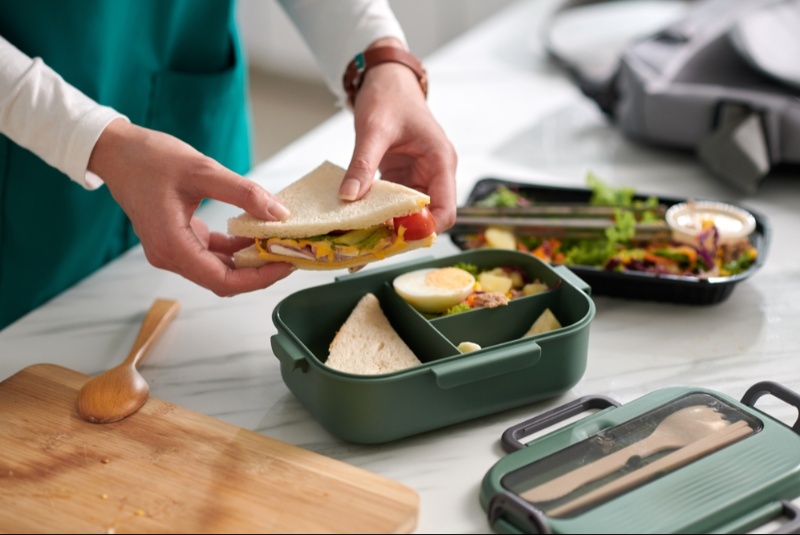Building savings is a crucial step towards achieving financial stability and security, yet it can often feel daunting, especially when everyday expenses seem to consume most of your income. However, saving money doesn’t have to involve drastic lifestyle changes or significant sacrifices. By incorporating a few simple hacks into your daily routine, you can gradually grow your savings without feeling deprived. This guide offers practical tips and strategies for building your savings, helping you to establish a strong financial foundation and work towards your long-term goals with confidence.
Automate Your Savings
One of the most effective ways to build your savings is to automate the process. Set up an automatic transfer from your checking account to your savings account on a regular basis, such as weekly or monthly. This approach ensures that a portion of your income is consistently set aside before you have the chance to spend it. Automating your savings makes it easier to build your fund over time without requiring constant effort or discipline. Even if the amount you transfer is small, the consistency will add up, helping you grow your savings steadily and effortlessly.
Round-Up Purchases to Save More
Another simple yet effective savings hack is to round up your purchases to the nearest dollar and save the difference. Many banks and financial apps offer programs that automatically round up each transaction and transfer the spare change into a savings account. For example, if you spend $4.50 on coffee, an additional $0.50 would be transferred to your savings. While the amounts may seem small, over time, they can accumulate significantly without you even noticing. Rounding up your purchases allows you to save money effortlessly, turning everyday transactions into opportunities to build your savings.
Embrace the 24-Hour Rule for Impulse Buys
Impulse purchases can quickly derail your savings goals, but implementing the 24-hour rule can help you avoid unnecessary spending. The next time you feel the urge to make an impulse buy, wait 24 hours before completing the purchase. This waiting period gives you time to consider whether the item is something you truly need or if it’s just a fleeting desire. More often than not, you’ll find that the urge passes, and you can save the money instead. Embracing the 24-hour rule helps you make more thoughtful spending decisions, ultimately allowing you to keep more money in your savings account.
Cook at Home and Pack Your Lunch
Dining out and buying takeout can quickly add up, making a significant dent in your budget. By cooking at home and packing your lunch for work or school, you can save a considerable amount of money. Plan your meals for the week, make a grocery list, and prepare your meals in advance to avoid the temptation of eating out. Not only is cooking at home more cost-effective, but it also allows you to eat healthier and control portion sizes. By reducing the frequency of dining out, you can redirect those savings into your account, helping you build your fund more quickly.

Cancel Unused Subscriptions and Memberships
It’s easy to forget about subscriptions and memberships that you no longer use or need. Take the time to review your recurring expenses, such as streaming services, gym memberships, and magazine subscriptions, and cancel any that you aren’t regularly using. Even small monthly fees can add up over time, and by eliminating unnecessary expenses, you can free up more money to put into savings. Regularly reviewing and canceling unused subscriptions and memberships is a simple way to cut costs and boost your savings without making significant lifestyle changes.
Use Coupons and Cashback Apps
Coupons and cashback apps are powerful tools for saving money on everyday purchases. Before you shop, check for coupons, promo codes, or discounts on items you need. Additionally, use cashback apps like Rakuten, Ibotta, or Honey to earn money back on your purchases. These apps offer a percentage of your purchase amount as cashback, which can be transferred to your savings account. By taking advantage of these savings opportunities, you can reduce your spending and grow your savings simultaneously. Over time, the money you save through coupons and cashback can significantly contribute to your savings goals.
Set Savings Goals and Track Your Progress
Having clear savings goals can motivate you to save more consistently and effectively. Whether you’re saving for a vacation, a down payment on a house, or an emergency fund, setting specific, measurable goals gives you a target to work towards. Break down your goals into smaller, manageable milestones, and track your progress regularly. Seeing your savings grow and getting closer to your goals can provide a sense of accomplishment and encourage you to continue saving. By setting savings goals and tracking your progress, you can stay focused and motivated on your financial journey.
Buy in Bulk and Save
Buying items in bulk can be a cost-effective way to save money on household essentials, such as paper products, cleaning supplies, and non-perishable food items. While the upfront cost may be higher, the per-unit price is often significantly lower, leading to long-term savings. When buying in bulk, be sure to only purchase items that you know you’ll use, and that have a long shelf life. By stocking up on essentials at a lower cost, you can reduce your grocery bills and free up more money to add to your savings account. Bulk buying is a smart strategy for cutting costs and building your savings over time.
Utilize a "No-Spend" Day or Week
A "no-spend" day or week is a designated period during which you commit to not spending any money on non-essential items. This practice encourages you to be mindful of your spending habits and helps you identify areas where you can cut back. During a no-spend period, focus on using what you already have, such as cooking meals with pantry staples or enjoying free activities like hiking or reading. The money you would have spent during this time can be directly added to your savings. Regularly incorporating no-spend days or weeks into your routine can help you save more money and become more conscious of your spending habits.
Review and Adjust Your Budget Regularly
A budget is a powerful tool for managing your finances and building your savings. However, it’s important to review and adjust your budget regularly to ensure it reflects your current financial situation and goals. As your income, expenses, or priorities change, update your budget accordingly to maximize your savings potential. Look for areas where you can cut costs or reallocate funds to increase your savings contributions. Regularly reviewing and adjusting your budget allows you to stay on track with your savings goals and make the most of your financial resources.
Avoid Lifestyle Inflation
Lifestyle inflation occurs when your spending increases as your income rises, often leading to little or no progress in building savings. To avoid this, resist the urge to upgrade your lifestyle every time you get a raise or bonus. Instead, keep your living expenses the same and allocate the additional income directly to your savings account or investment portfolio. By maintaining your current lifestyle while increasing your savings contributions, you can accelerate your savings growth and achieve your financial goals more quickly. Avoiding lifestyle inflation is key to building a strong financial foundation and ensuring long-term financial security.
Building your savings doesn’t have to be a daunting task. By implementing these simple everyday hacks, you can make steady progress toward your financial goals without feeling deprived. Automating your savings, rounding up purchases, and embracing strategies like the 24-hour rule or no-spend days can help you save more money effortlessly. Additionally, by reviewing your budget regularly, avoiding lifestyle inflation, and making smart choices like buying in bulk and using coupons, you can maximize your savings potential. With consistency and discipline, these small changes can add up over time, helping you grow your savings and achieve financial peace of mind.




